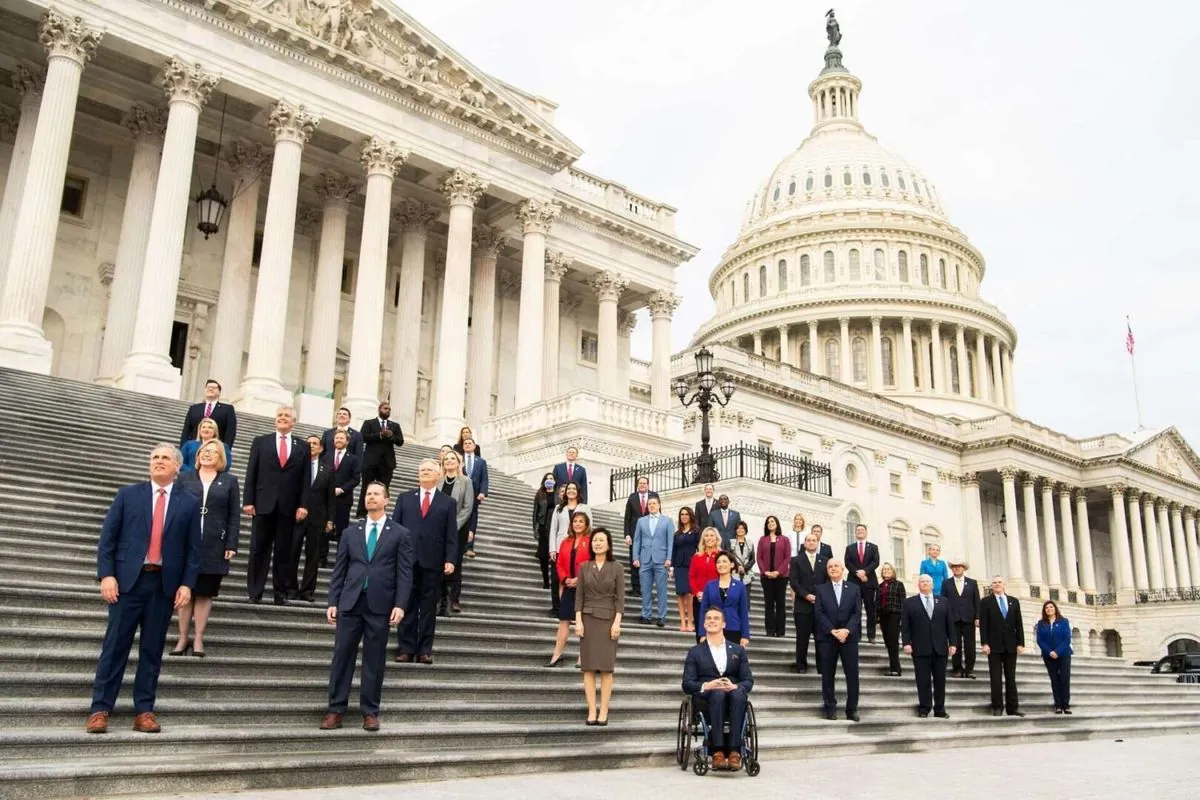In response to growing concerns about political violence, a bipartisan group of House members is advocating for a constitutional amendment to address potential mass casualty events affecting Congress. This proposal, dubbed the "continuity amendment," aims to ensure uninterrupted representation and discourage violence aimed at altering the balance of power in Washington.
The initiative comes amid a backdrop of increasing threats against lawmakers. According to the Capitol Police, there has been a 300% rise in threats against members over the past seven years. Recent events, including the 2017 congressional baseball practice shooting and the January 6, 2021 Capitol attack, have heightened awareness of the vulnerability of elected officials.
Rep. Derek Kilmer (D-Wash.), one of the amendment's proponents, emphasized the potential consequences of a successful attack: "You can literally flip a majority for three to four months. Which I think is a frightening incentive for political violence."
The proposed amendment would require each House member to submit at least five names from their political party to their state's governor. In the event of a member's death, the governor would select a replacement within 10 days, to be immediately seated by the House Speaker. This interim appointee would serve until a special election could be held.
Currently, the Constitution mandates that House vacancies be filled only through special elections, which typically take three to four months to organize. This prolonged period without representation could be particularly problematic during a national crisis.
The amendment faces significant hurdles, as constitutional changes require a two-thirds majority in both houses of Congress and ratification by three-fourths of state legislatures. The last successful ratification occurred in 1992 with the 27th Amendment, which pertains to congressional pay raises.
Rep. Brad Wenstrup (R-Ohio), another supporter of the amendment, argued for its necessity: "A violent domestic terrorist attempted to assassinate Republican members of Congress. He wanted to wipe out the Republican majority and change the balance of power."
While the proposal has bipartisan support, its passage through a narrowly divided Congress remains uncertain. Rep. Stephanie Bice (R-Okla.) noted that since 1945, 40 constitutional amendments have been introduced, with none passing.
"In the 21st century, it's naive to imagine that we could never face the situation that motivates the proposal."
Experts suggest considering broader implications, such as revising the Presidential Succession Act, which includes congressional leaders in the line of succession.
As discussions continue, the proposed amendment highlights the ongoing challenges in balancing democratic processes with the need for governmental continuity in an era of evolving security threats.
